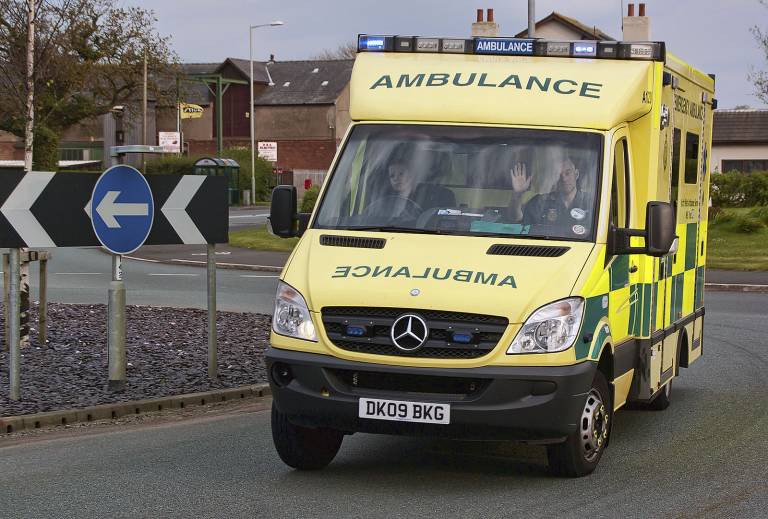Study analyses how far people will travel for specialist cancer care
8 March 2018
People are willing to travel 75 minutes longer for specialist cancer surgery if it reduces their risk of complications by 1%, according to new UCL-led research.

The study, published today in the British Journal of Surgery, and funded by the NIHR Health Services and Delivery Research Programme, analysed patients' and health professionals' preferences for centralising specialist cancer surgery services. While the aim of centralising specialist services into fewer units is to reduce local variations in quality of care and improve outcomes, it could also increase demands on patients and families in relation to travel times.
"Our findings suggest that people are willing to travel longer if it means having better care and better outcomes. But, if services are not linked with better care and outcomes, people prefer to be treated by their local hospital," said senior author Professor Stephen Morris (Institute of Epidemiology & Health Care). "When planning changes of this kind, it is vital that improvements in care and outcomes are at the heart of proposals."
Professor Naomi Fulop (Institute of Epidemiology & Health Care) who was Chief Investigator of the study added, "These findings are part of a wider study, called RESPECT-21, which is evaluating the impact of centralising specialist cancer surgery. It is important to understand as part of that wider study what people value about both how care is provided and the outcomes of that care, and how far they are willing to travel to get these."
In the UK, the National Cancer Strategy is currently evaluating whether cancer surgery would benefit from moving towards a more centralised system. In London since 2011, and Greater Manchester since 2014, cancer care has been provided in 'integrated cancer systems', working towards centralisation of specialist surgical services for prostate, bladder, kidney and oesophagogastric cancers. The paper highlights that the rationale for centralising specialist cancer surgery services is to reduce unacceptable variation in quality of care and outcomes achieved by different centres.
Professor Kathy Pritchard-Jones, chief medical officer, UCLH Cancer Collaborative commented: "This study underlines the importance of researchers partnering with NHS leaders to fully understand service improvement work. When we brought together several smaller centres in north central and east London to create larger specialist cancer teams providing complex cancer surgery, we involved patients, carers and health professionals in the service redesign. It is good to now see the evidence that patients and the public value these new services and are prepared to travel further to access the benefits they offer for a specialist treatment that is a planned part of their cancer treatment pathway."
The researchers analysed data from over 444 health professionals, patients and members of the public.
Source
Links
Image
- Credit: Keith Sergeant Source: Flickr
Media contact
Rowan Walker
Tel: +44 (0)20 3108 8515
Email: rowan.walker [at] ucl.ac.uk
 Close
Close

